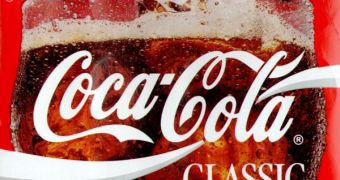Chemicals used to give Coca Cola, Pepsi and other similarly-colored fizzy drinks their “caramel” coloring cause cancer, the Center for Science in the Public Interest says in a petition to the FDA, asking it to ban its use.
According to the group, the chemicals used to create the “caramel” coloring in these beverages and which do not occur in nature, can cause a variety of cancers – and should therefore be banned, Food Safety News reports.
If the FDA chooses to ban the ingredient, then all the major companies will be forced to alter their recipes for cola and replace it – or else agree to include a cancer warning on the label, like is the case with cigarettes, for instance.
As the CSPI puts it in the petition to the FDA, the caramel color in fizzy drinks is the result of a reaction between sugars with ammonia and sulfites, in controlled temperatures and under high pressure.
These reactions “result in the formation of 2-methylimidazole and 4 methylimidazole, which in government-conducted studies caused lung, liver, or thyroid cancer or leukemia in laboratory mice or rats,” the CSPI states.
Both 2-MI and 4-MI are carcinogens and there’s “clear evidence” for that, the CSPI adds in the same petition.
As such, the FDA should ban their use, mandating that companies replace it with something else or, if not, include a cancer warning on the label of each recipient.
“Carcinogenic colorings have no place in the food supply, especially considering that their only function is a cosmetic one. The FDA should act quickly to revoke its approval of caramel colorings made with ammonia,” executive director Michael F. Jacobson says, as cited by the aforementioned media outlet.
Representatives for Coca Cola and Pepsi Co. were not immediately available for comment on the latest claims. A statement from the Grocery Manufacturers Association says the allegations are groundless and that there’s no proof that these two chemicals are human carcinogens.

 14 DAY TRIAL //
14 DAY TRIAL //